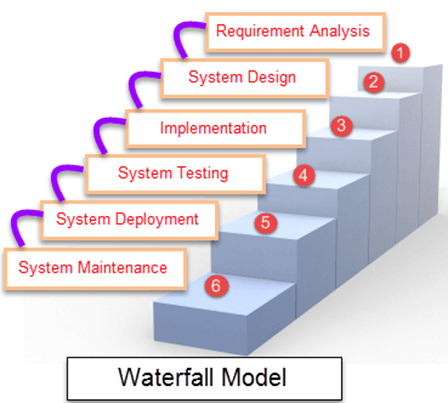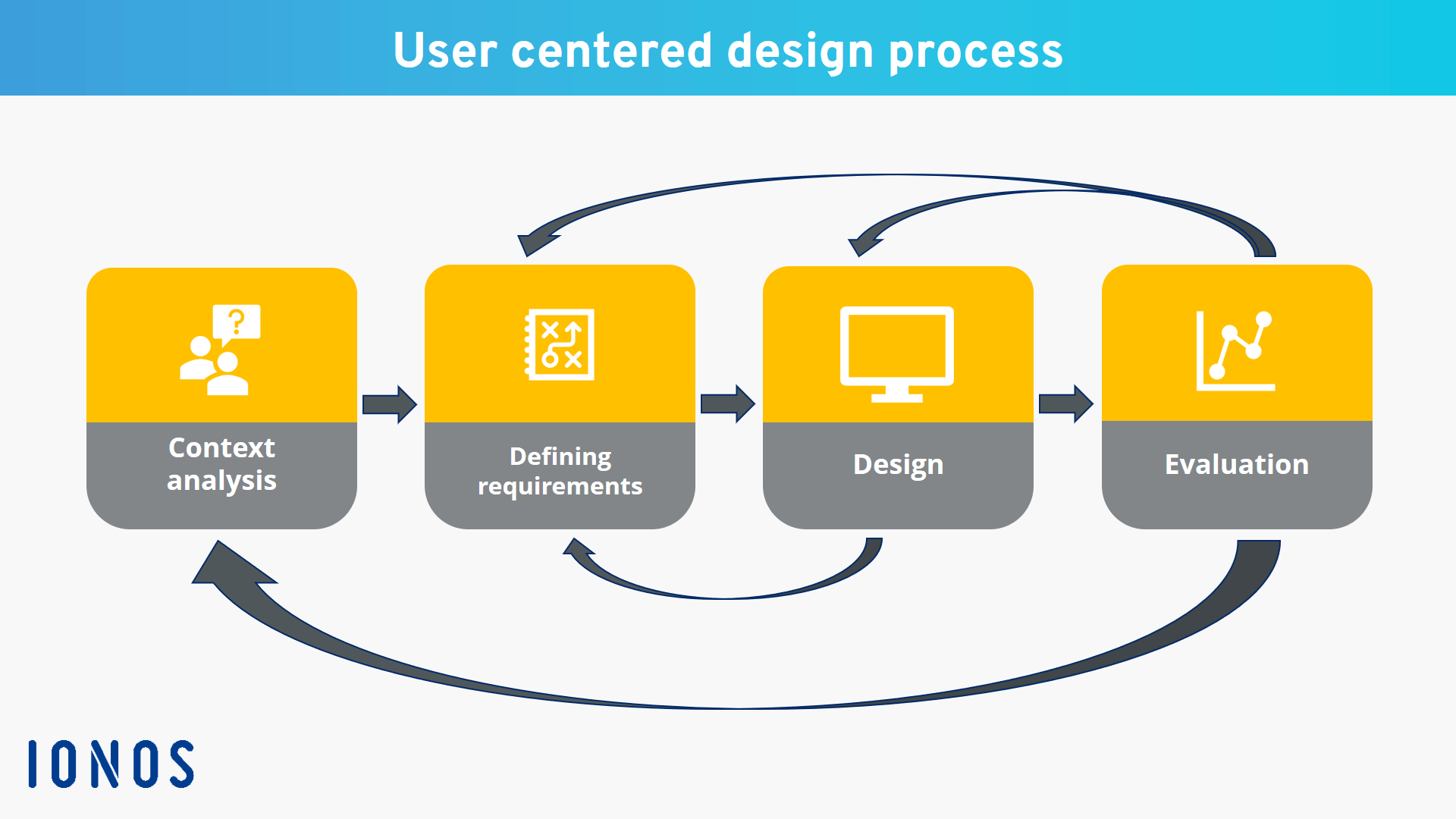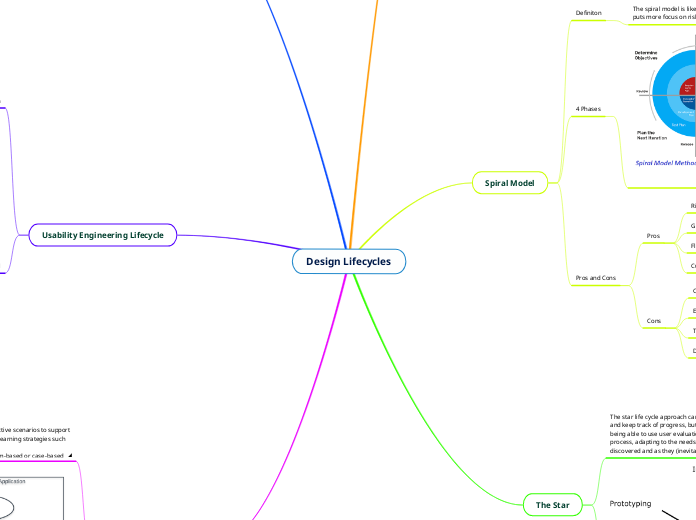Design Lifecycles
Waterfall Model
Definiton
Methodology

6 Stages
Requirement Gathering stage
Design Stage
Built Stage
Test Stage
Maintenance stage
Pros and cons
pros
Each phase must be completed before the next.
Suitable for smaller projects with clear requirements
During the process of making software, any changes are made.
cons
Error can be fixed only during the phase
It is not good for complex projects where requirements change often.
The testing period comes quite late in the development process.
Spiral Model
Definiton
The spiral model is like incremental system development, but it puts more focus on risk analysis.
4 Phases

Subtopic
Pros and Cons
Pros
Risk Handling
Good for large projects
Flexibility in Requirements
Customer Satisfaction
Cons
Complex
Expensive
Too much dependability on Risk Analysis
Difficulty in time management
The Star
The star life cycle approach can make it hard to manage time and keep track of progress, but it has the great advantage of being able to use user evaluation throughout the whole design process, adapting to the needs of the users as they are discovered and as they (inevitably) change.

Subtopic
Iteractive User–Centred Model
Definiton
User–centered design (UCD) is
an iterative design process to
design focus on the users and
need to phase of the design
process
Process

Subtopic
Usability Engineering Lifecycle
Definition
Usability engineering is a professional field that focuses on making systems easier to use. It uses theories from computer science and psychology to define problems that can happen when using such a system. Usability engineering is the process of testing designs with users or usability experts at different stages of the development process.
3 phase of UEL cyclic model
Requirements analysis
Design, testing, and development
Diagram

Subtopic
Scenario-Based System

Subtopic
